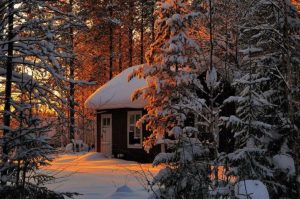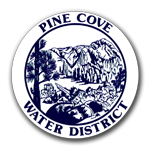Winter is coming how can you prepare

It is important to make sure your home is ready for the coming winter months. Winter heating costs can double if your windows are poorly insulated, your plumbing breaks, or if the heating system is out-of-date. Making proper precautions to ensure your home is prepared for winter can save you time, money and a lot of unnecessary hassle.
- To prevent damage, it is just as important to winterize your vacant home. Learn how to properly shut off your water valve (in case a pipe bursts) and turn your water off every time you leave your mountain home.
- Unplug appliances such as microwaves and toasters to prevent faulty switches.
- Insulate pipes with insulation or newspapers and plastic and allow faucets to drip a little during cold weather to avoid freezing. Running water, even at a trickle, helps prevent pipes from freezing.
- Clean your gutters; make sure water can flow freely through your gutters to avoid icicles and ice dams.
- Change your ceiling fans clockwise to force hot air at the ceiling towards the floor.
- Replacing the filters in your forced heating unit improves the efficiency of your unit.
- Window insulation film can help keep heat from escaping out your windows.Winterize your home to extend the life of your fuel supply by insulating walls and attics, caulking and weather-stripping doors and windows, and installing storm windows or covering windows with plastic.
- The simple act of installing a storm door can increase energy efficiency by 45%, by sealing drafts and reducing air flow
- Placing a rolled towel at the bottom of your exterior door or a draft guard prevents heat from leaking out.
- Maintain heating equipment and chimneys by having them cleaned and inspected every year. Your chimney doesn’t necessarily need to be swept every single year, but it does need an annual inspection. Wood stoves, however, should be swept more often — as soon as they’ve accumulated a quarter of an inch of creosote.
- Trim tree branches near your windows, roof, or parking areas before the weight of winter ice and snow can cause them to snap.
- Inspect your home for any openings where animals could use to get inside. Make sure your fireplace flue or damper is closed, as bats, birds and squirrels are known to get inside this way.
- Winterize your house, barn, shed or any other structure that may provide shelter for your family, neighbors, livestock or equipment. Clear rain gutters; repair roof leaks and cut away tree branches that could fall on a house or other structure during a storm.
- Keep fire extinguishers on hand, and make sure everyone in your house knows how to use them. House fires pose an additional risk, as more people turn to alternate heating sources without taking the necessary safety precautions.
- It is wise to communicate with a trusted friend or neighbor that your will be gone for a prolonged period of time and they have your contact information. Taking these steps can help protect your home from theft, water damage, and heating or electrical system issues while you are away for an extended period of time.
Bundle the house up for winter
Posted in: Customer Infomation, Frozen Pipes, Weather, winterizing
Leave a Comment (0) ↓